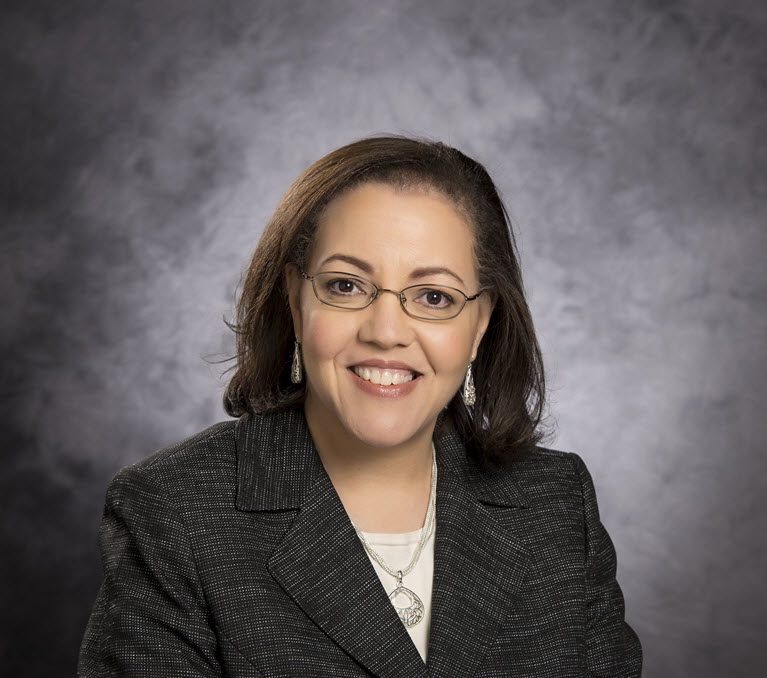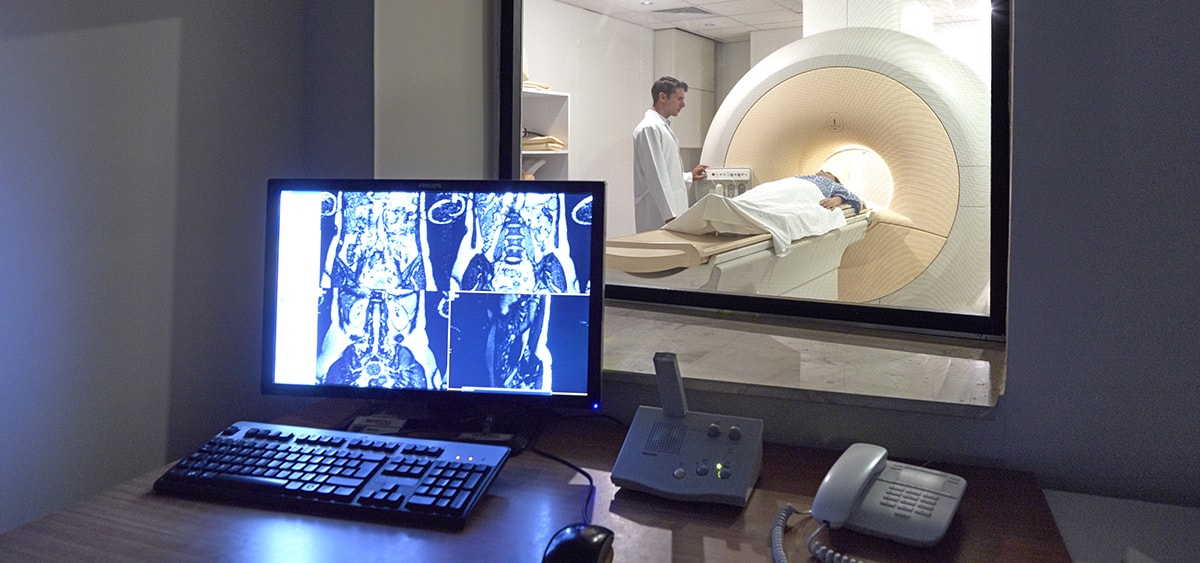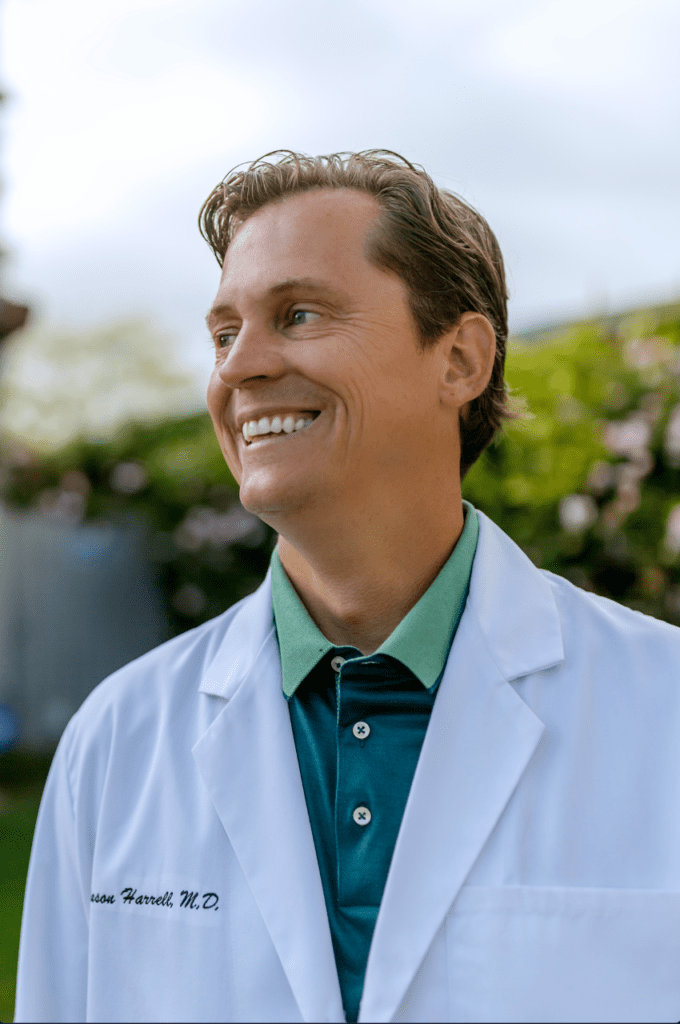
Healing takes more than procedures, techniques and medications. True healing means giving attention to the whole patient. Dr. George Soliman, M.D., views his career as one person helping other people improve their lives.
Dr. Soliman is an interventional pain management physician practicing at the Orthopedic Center of Florida in Fort Myers. His specialty is diagnosing and treating chronic pain in the back, neck, limbs and joints.
Despite degrees and credentials from The Ohio State University, Emory University School of Medicine, Mayo Clinic, plus multiple certifications, presentations and publications, Dr. Soliman doesn’t emphasize them to highlight his expertise or promote his career. Instead, he has a unique point of view regarding his successes and his place in the world.
“I consider myself less of a doctor and more of a person. All my patients call me George,” Dr. Soliman shared.
Person First, Doctor Second
Dr. Soliman is the son of first-generation immigrants who worked hard and gave their son a strong work ethic.
“When you first come into this country, it doesn’t matter what your degree is or what you were in other countries. I learned the value of hard work. I’ve been a janitor, cleaned toilets, worked as a grill cook, and worked manual labor,” Dr. Soliman said.
To Dr. Soliman, his accomplishments and degrees are about his ability to provide a service to others and not a reason to place himself above others.
“No matter where you work, everybody’s still a human. People say, ‘You’re a physician, blah, blah, blah. You deserve to be called doctor!’ No, I’m George. Some people like to make other people’s lives better. Ultimately, I fell into medicine because I like helping people,” Dr. Soliman explained.
The People Aspect of Medicine
Dr. Soliman is most definitely a “people person.” He loves getting to know about his patients—their families, illnesses, losses, milestones and triumphs. He is also a keen observer, noticing patterns in human behavior. He realizes that, in his profession, he often meets people at the worst moments of their lives.
“You can’t judge them based on how abrasive they are or how they dress or look because I’m sure that at the worst moment of my life, I’m not going to look very good. And I’m not going to communicate effectively or clearly, or in a manner that’s respectful. So never judge anyone based on your first impression. Not in medicine,” Dr. Soliman said.
Dr. Soliman believes that labeling people and making assumptions based on such a label is easy. But when it happens in medicine, it can be harmful. For example, if a young person is brought in drunk or on drugs, it may be for the first time in their lives. Yet, the medical record may portray them as drug abusers, so they may not be adequately listened to or believed because of that label.
“I give everybody the benefit of the doubt. I look for the good. Within three or four interactions, they’re either going to prove that they are a genuinely nice human being or not. We’re giving them a chance to be human and have emotions show when they are hurt or when they are happy,” Dr. Soliman explained.
The “People” Approach to a Medical Practice
Dr. Soliman believes in a humanistic approach to medicine. On the business side, you have to see a lot of patients to cover overhead and other costs. Private practice depends on volume. Unfortunately, that means you have little time for each patient.
“I look up every patient every morning. I’m on the computer for an hour and a half. I know every single person that’s coming in. I know why they’re coming. I know who referred them. I know what we’ve done, so that most of the time spent in the room with the patient is face-to-face hearing from them. I’m not staring at a computer or cell phone,” Dr. Soliman shared.
Dr. Soliman is also willing to go the extra mile for the people in his care. For example, one patient had been through several failed procedures to alleviate her pain. He succeeded. She later told him that he was the only doctor who had ever sat and talked with her and asked about her family. Those conversations produced information that helped him find the right products to address her problems. He even paid for them—and a small refrigerator to store them—out of his own pocket!
Dr. Soliman hopes that physicians of the future see that a medical practice is not only about science and medicine; it’s also about human beings.
“Let the patients talk. When I walk into a room with a patient, especially for the first time, I say, ‘Hi, I’m Dr. Soliman, but I go by George.’ I try to put myself on their level. I’ll never talk down to a patient,” Dr. Soliman said.
A Holistic View of Medication
Dr. Soliman prefers a more holistic approach to medication. Most patients are older and at higher risk of side effects. So, where possible, he uses natural supplements with science-based evidence supporting their efficacy. He also emphasizes exercise and physical therapy. When he does prescribe medication, he tries to avoid addictive medicines such as opioids.
“I grew up in a scenario where funds were tight. I watched my parents scrounging to pay for doctor’s visits and medicines. So I will prescribe only generic medications because name brands are much too expensive,” Dr. Soliman shared.
Conclusion
Dr. Soliman never introduces himself as a doctor or asks others what they do. Categorizing people makes you miss out on a lot in life. Instead, the rapport he builds with patients, his observations and his benefit of the doubt philosophy allow him to treat his patients more effectively.
For Dr. Soliman, the focus is not be on titles or degrees and how they stack up against other doctors.
“I don’t particularly look to stand out in a crowd amongst physicians. I don’t know what we’re competing about. I feel pretty content with myself,” Dr. Soliman concluded.
Dr. Soliman understands that it’s essential to treat the whole person for healing. As a result, his patients walk away not only ailment-free but also heard, understood and respected.






0 Comments